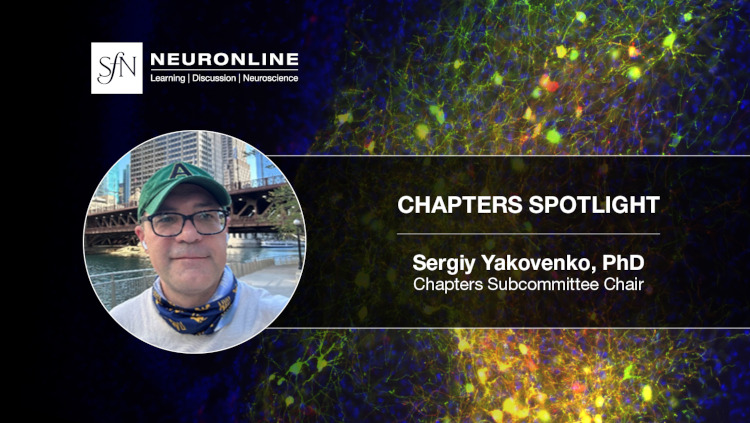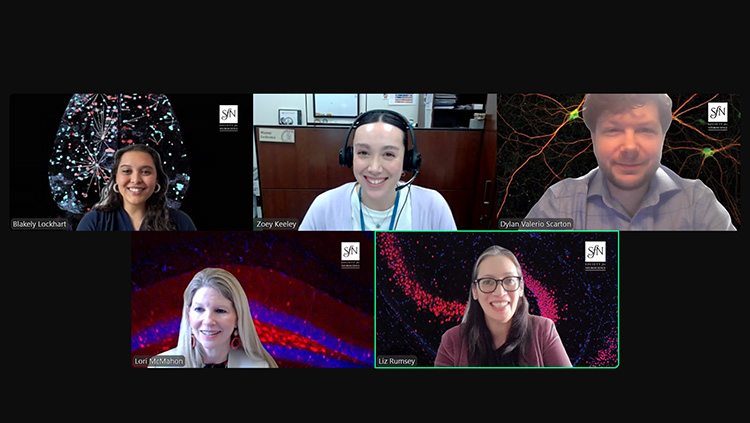Science Advocacy Made Easy: How (Re)activating an SfN Chapter Can Boost Your Impact
- Featured in:
- SfN Chapter Resources

As a postdoc at the National Institute of Environmental Health Sciences (NIEHS), I am considered a trainee and not a federal employee. Trainees are limited in the types of advocacy activities we can do. For example, we cannot sponsor events. We also cannot advocate for specific funding levels to our elected members of Congress with our government affiliation, though we can do this as “off-duty” citizens.
So, when I was selected as an SfN Early Career Policy Ambassadors (ECPA) in 2014, my primary goal was to reactivate a 15-plus year dormant local SfN Chapter in Research Triangle Park, North Carolina, so that I could use the chapter as my affiliation to procure funds for advocacy.
Thankfully, SfN was extremely helpful in the reactivation process, as were a critical mass of enthusiastic local neuroscientists. We assembled bylaws, an executive board, and developed a yearly program that consisted of science advocacy events, socials, an annual conference, quarterly newsletters and outreach events. Our sponsorship committee raised more than $10,000 in monetary and in-kind funds during our first year to support events.
A science policy town hall meeting with Rep. David Price (D-NC) was our first event. We found hosting a town hall is a simple and easy forum for your elected official to participate in a meaningful dialogue about the benefit of scientific research to your community. The event was remarkably easy to set up, in large part due to help from the Society. SfN put us in contact with the representative’s in-district scheduler and suggested how to approach the invitation.
Representative Price gave opening remarks, followed by a lively Q&A session and a meet and greet social where members could speak individually with Rep. Price about their research. Reporters from The Local Tarheel and NIEHS covered the event, creating a lasting buzz on topics discussed.
One of the recurring themes during our Q&A was about how scientists can educate legislators and the public about the importance of federal funding for science, which is actually one of our chapter’s main goals.
The town hall helped us advance this goal because it is what initiated our chapter’s ongoing and meaningful relationship with Rep. Price. We even had an in-district meeting during the Congressional August recess to discuss how sequestration, if it goes back into effect this year, will impact neuroscience research in his district.
Getting involved in advocacy with your local chapter also brings about opportunities for personal and professional growth. You will meet countless people in your field, and your name will become affiliated with a positive and growing resource for neuroscience in your area. Through my involvement in advocacy, I have been offered invitations to attend advocacy events in Washington, D.C., been spotlighted on advocacy blogs and institute newsletters, and even managed the @iamscicomm Twitter handle during SfN’s annual meeting.
In addition to hosting or attending a town hall meeting, here are some other effective ways to advocate for science:
- Write letters: Tell your representative that your vote depends on whether they vote in favor of a budget that supports research.
- Use social media: Start a dialogue about research funding on Twitter, Facebook, and LinkedIn, and encourage others to do the same.
- Visit policymakers: Schedule an appointment at your representative’s office with prepared asks or goals, either at SfN’s Hill Day or in your home district.
- Disseminate your knowledge: Organize an interest group or informal seminar for your chapter (or student/postdoc association, or local school) where members of your community can discuss and advocate for research.
- Apply or encourage others to apply for SfN’s ECPF program: Gain the opportunity to learn first-hand how to advocate in Washington, D.C., and in your community.
The more legislators hear from scientists, the more knowledgeable they will be, and the more support scientists will receive. It is critical for us to form a unified voice and effectively advocate for research funding.
Explore these other resources:
- How to find your representative
- Contact your senator's office
- SfN advocacy network
- SfN Chapter resources
- NIH RePORTer











